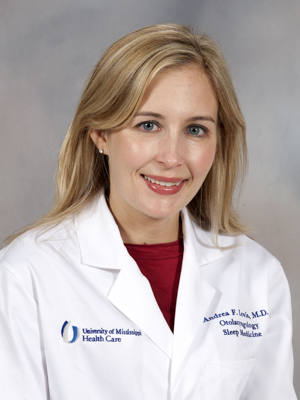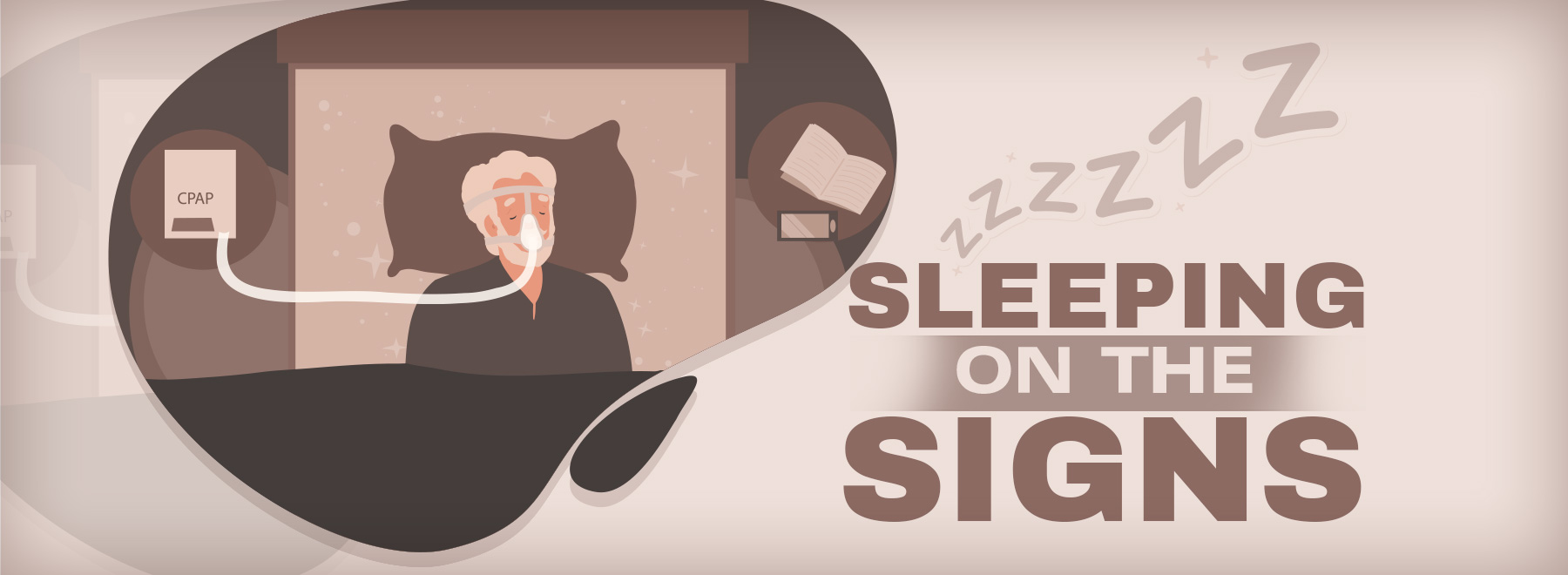Sleep apnea takes hidden health toll, expert says
Sleep apnea is often linked with snoring or machines designed to alleviate it, yet the condition's impact goes far beyond disrupted sleep. The health consequences of untreated sleep apnea can be severe, affecting everything from cardiovascular health to overall quality of life.
Sleep apnea is characterized by repeated interruptions in breathing during sleep, known as apneas, which can last from a few seconds to minutes and occur 30 times or more an hour. There are two primary types: obstructive sleep apnea, caused by airway blockage, and central sleep apnea, where the brain fails to signal the muscles to breathe. CSA represents less than 1% of cases, while OSA affects most individuals.

“Sleep apnea, particularly obstructive sleep apnea, is often underdiagnosed,” said Dr. Andrea Lewis, professor of otolaryngology-head and neck surgery at UMMC and a sleep medicine specialist. “Many individuals with sleep apnea may not realize they have it, as symptoms can occur during sleep and be difficult to notice. There are many possible reasons for underdiagnosis. One of these is lack of awareness among the general population and health care providers.
“Symptoms like daytime fatigue, headaches and irritability can be attributed to other causes, such as stress or aging. For women, symptoms of poor sleep are often attributed to menopause. Symptoms can vary widely among individuals, making it harder to recognize a common pattern.”
While loud snoring is the most common symptom reported by those diagnosed with OSA, snoring does not necessarily mean a person has sleep apnea.
“Men are more likely to experience loud snoring, observed episodes of breathing cessation during sleep, and excessive daytime sleepiness,” said Lewis. “Women are more likely to report insomnia, morning headaches, mood disturbances and fatigue rather than excessive daytime sleepiness. I especially note that women will report frequent awakenings during sleep where men will say that they sleep well at night but note excessive daytime sleepiness.”
Men aged 65 and older have a higher risk of developing sleep apnea than women and younger people. For men aged 30 to 49, the frequency of sleep apnea is four times higher than that for women. However, between the ages of 50 and 70, the difference between the two groups narrows, and men are only twice as likely to experience OSA. Older adults in that age range are more likely to have a sleep apnea diagnosis than other age groups.
This may be due to physical changes that affect the throat and neck area with age. Some older adults may have increased fat deposits around the throat that are more likely to restrict airflow during sleep. Obesity raises the risk of OSA for males, but only 20-30% for females. The frequency of sleep apnea increases after menopause. Changes in hormone levels can impact weight and upper airway anatomy, which in turn can impact the likelihood of developing OSA. People who are pregnant or who have PCOS may also have higher rates of sleep apnea due to their hormone levels.
OSA and overall health have a two-way relationship, with certain health conditions, increasing the risk of developing OSA. Hypothyroidism, cleft lip or palate, heart disease, kidney disease, large tonsils, higher weight and PCOS are some conditions that can exacerbate the risk of sleep apnea. OSA can also increase the risk of developing certain health conditions such as type 2 diabetes, high blood pressure, heart failure, kidney disease, stroke, nonalcoholic fatty liver disease and sexual dysfunction.
Large studies have typically shown an association between moderate-severe OSA and poor cardiovascular outcomes, whereas mild OSA has been associated with reduced quality of life, including general tiredness, fatigue, daytime impairment, difficulty concentrating and completing tasks, depressed mood, poor sleep quality and insomnia and poor psychomotor performance.
A sleep study can help determine if you have sleep apnea or another sleep disorder. Home sleep studies are generally recommended for patients with a high likelihood of moderate to severe OSA without significant comorbid conditions due to their lower cost and convenience. These tests focus on detecting sleep apnea and are suitable for patients who have difficulty sleeping in a lab setting.
In-lab sleep studies, or polysomnography, are recommended for patients with complex sleep issues, significant comorbid conditions like heart disease or neurological disorders, or when home sleep study results are inconclusive. Polysomnography provides a comprehensive picture of the patient's sleep by measuring brain waves, oxygen levels, heart rate, breathing and eye and leg movements.
Home sleep apnea tests typically measure airflow, breathing patterns, blood oxygen levels, and heart rate, but they are not as reliable as in-lab tests. If a diagnosis cannot be made from a home sleep study or if data is lost, an in-lab study is usually ordered to ensure an accurate diagnosis.
Lewis said she categorizes treatment options in three categories: conservative measures, medical therapies and surgical therapies.
Conservative measures are mostly lifestyle changes for people with mild obstructive sleep apnea or positional obstructive sleep apnea including sleeping on their side, avoiding alcohol and sedatives and sleeping on a wedge pillow. Continuous Positive Airway Pressure, or CPAP, machines and other oral appliances are medical devices that keep the airway open.
There are a wide variety of surgical procedures available to patients unable to tolerate CPAP. Lewis said procedures should be tailored to each patient’s anatomy.
For more information, call the Department of Otolaryngology-Head and Neck Surgery at 601-984-5160.
The above article appears in CONSULT, UMMC’s monthly e-newsletter sharing news about cutting-edge clinical and health science education advances and innovative biomedical research at the Medical Center and giving you tips and suggestions on how you and the people you love can live a healthier life. Click here and enter your email address to receive CONSULT free of charge. You may cancel at any time.



